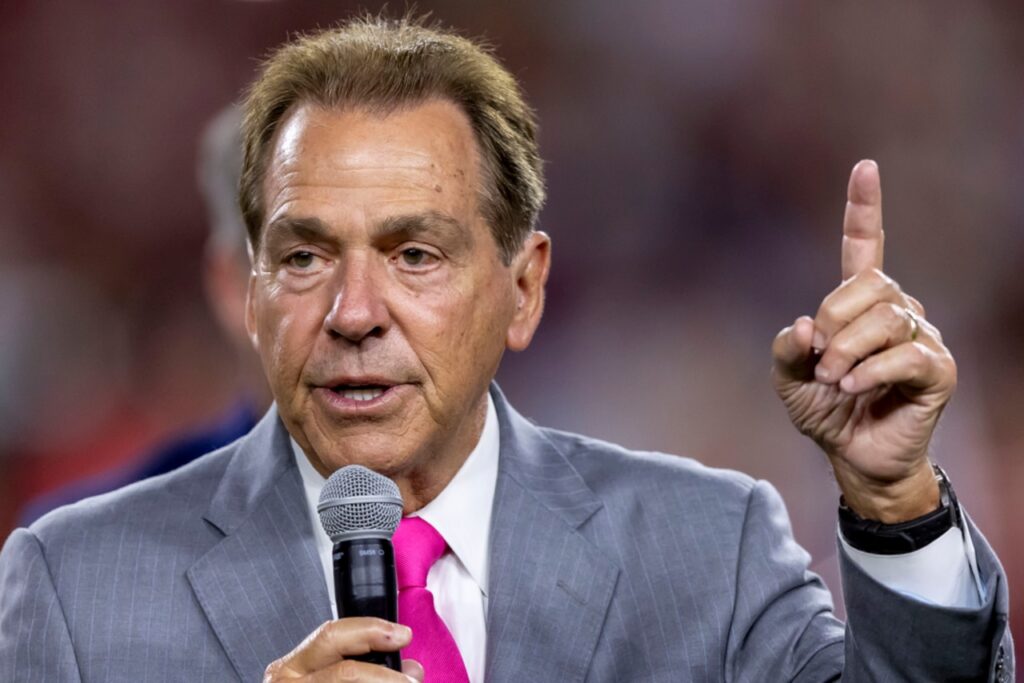Former Crimson Tide coach Nick Saban walked away from the sideline on the field that now bears his name, but the football legend wasn’t done playing.
Just days after thousands of people screamed his name during the renaming of Alabama Stadium to Saban Field at Bryant-Denny Stadium, the coach will travel to Washington, D.C. to present his ideas on the new name, image and likeness rules and their impact on the future of college football.
On Thursday, Saban will lead a panel discussion hosted by U.S. Rep. Terri Sewell, a Birmingham Democrat, at the Congressional Black Caucus Foundation’s annual legislative conference.
“It’s a very hot topic in Congress,” Sewell said Sunday in an interview with AL.com. “Hearing directly from those who have been involved in this evolving landscape would be a benefit to us all. »

The presentation includes both Saban and Charles McClelland, commissioner of the Southwest Athletic Conference. The SWAC is a century-old athletic conference that represents historically black colleges and universities.
In 2021, the Supreme Court restricted the National Collegiate Athletics Association’s power to block students from receiving payments. The NCAA then allowed states to set their own rules. Student-athletes can now earn cash and other business partnerships without losing their player eligibility.
Saban is an outspoken critic of the NIL rules, which he says have changed the landscape of the college game, shifting the focus from player development to financial concerns. He was blunt in his assessment.
He has appeared numerous times before legislators and congressional roundtables.
The panel is the latest in a series of discussions among lawmakers about the NIL rules and their impact on college sports.
Saban told a panel presented by U.S. Sen. Ted Cruz, R-Texas, in March that the new rules contributed to his decision to retire.
Sewell compared the current situation to the “Wild West.”
“Each state now makes its own rules that allow some states to become more competitive than others,” Sewell said. “I see and understand the need for federal intervention, especially since the NCAA has lost much of its credibility. Being able to put in place federal safeguards that would level the playing field is what many in the world of college sports are looking for.”
Sewell found it appropriate for her to introduce the panel because her district, Alabama’s 7th District, extends to Tuscaloosa and Birmingham to include the University of Alabama, as well as the SWAC and SEC headquarters in Birmingham.
“This is an opportunity for me to leverage those relationships and for all of us to benefit and have a very serious conversation about what Congress can do to level the playing field in this new and changing dynamic in college sports,” she said.
If you purchase a product or create an account through a link on our site, we may receive compensation. By using this site, you consent to our User Agreement and agree that your clicks, interactions and personal information may be collected, recorded and/or stored by us and social networks and other third party partners in accordance with our Privacy Policy.

